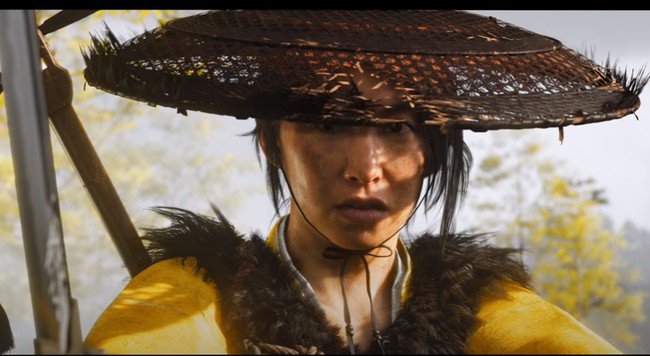In modern cinema, comics, gaming, and television, we’re being inundated with what has been described in many ways, but is commonly known now as the “girlboss.” You know her because she’s been shoved down your throat repeatedly over the better part of the last decade.
Advertisement
She’s perfect, she’s the most skilled, she’s the most liked, and even when she’s not the most liked, she proves everyone wrong about her. Her only flaw is that she doesn’t believe in herself enough, and when she does, watch out. She can fight men three times her body weight and win with ease. She’s the moral guiding star for everyone around her.
She’s the most annoying character in everything she’s in.
This Mary Sue character isn’t a new creation, but the latest wave of feminism made her nearly mandatory to appear in almost any creation that hit the mainstream. You saw her appear in major franchises such as Star Wars in the form of Ray Palpatine and in Mulan from the live-action Mulan.
The most potentially recent entry of a girlboss concerns the sequel to a game by Sucker Punch Studios called “Ghost of Tsushima,” which ranks as one of my all-time favorite games. The game takes place in feudal Japan during the Mongol invasion, where you play Jin Sakai, one of the last samurai on the island after the initial battle to repel the Mongols goes south quickly and the Mongols take over the island with a clear path to the Japanese mainland. Your job was to break the samurai code and fight with stealth and trickery, and use your newfound skill to drive the invaders out.
The game was so successful that it warranted a sequel, and now we have it in “Ghost of Yotei,” a game that takes place 300 years after the events of Ghost of Tsushima… only now the protagonist you play as is a woman. As soon as it was announced, people were already wary. We’re already drowning in girlbosses, but did we need another, and taking the role of one of the most incredible games in recent history?
Advertisement
Then it got worse from there. It turns out that the woman voicing and mocapping the protagonist was Erika Ishii, a wokescold of the highest order who is gender-fluid, wants to abolish the police, and loves herself some DEI. There was immediate backlash over this casting choice, which lead to Sony ex-boss stating that if people didn’t like this development, then they shouldn’t buy the game.
Ex-Sony Boss Shawn Layden fires back at those criticizing Ghost of Yotei.
Says: “If you don’t like it, don’t buy it”Don’t worry, bro. I won’t. pic.twitter.com/oRFEi5l7Ud
— Memology 101 (@NewsM101) September 26, 2024
Quick aside: You never…. ever… say this to a potential audience, because they will accept your terms, as has been demonstrated repeatedly. Entire multi-million dollar creations have failed miserably after audiences took up that exact offer.
But are gamers jumping the gun here? Yes and no. Sucker Punch may very well release a game that matches the depth, detail, and fun of Tsushima. Ishii’s presence in Yotei might be entirely inconsequential. I certainly hope that is the case, but I also don’t blame people for not wanting yet another girlboss played by someone who thinks you’re evil because you voted for big bad orange man, or you just don’t believe in the concept of transgenderism.
Naturally, the negative reaction to the girlboss character has spurred the usual accusations of sexism and toxic masculinity toward anyone who pushes back against her appearance. This back and forth has yet become another front in a culture war battle that people are sick of fighting at this point.
Advertisement
But let’s strip away the politics for a moment and focus on why people hate this girlboss character to begin with. What is at the core of this dislike? Is it sexism? Is it the fact that people, especially men, just don’t like seeing a competent woman establishing dominance?
No, it’s not that. There are plenty of those in gaming and cinema that people truly enjoyed. Not too long ago, I wrote on a Netflix show called “Blue Eye Samurai” which featured a badass swordswoman in feudal Japan as its lead protagonist, and it’s generally a very well regarded show, including by me.
People don’t actually have a problem with female leads, even those in an action setting, the issue is that girlbosses tend to ignore every storytelling staple that make a character good. She tends to be perfect from the start, never having to earn her skills or reputation. She’s emotionless and stoic too often, giving off the idea that she’s strong in heart and mind, but again, this is unearned. A demeanor does not indicate strength, it just means you have a good poker face.
Let’s get down to brass tacks.
A girlboss often fails to be a good character because she’s too unrealistic. She’s usually a flat character that comes off more like a pretender than a genuine hero. She’s about as shallow as a shower, be it her motivations or her personality, only showing character in order to check boxes to give her what passes for multidimensionality. This doesn’t do the trick, and she lacks that human element that allows us to attach ourselves to her.
Advertisement
The brutal truth is that female characters DO have to be handled differently in order to sell well as an action hero. A woman can indeed be an incredibly skilled swordswoman, better even than many of the men she encounters, but she has to earn that through trials and tribulations that are much harder than what men have to go through due to being smaller and weaker in body. The toll it takes on her to earn those talents are going to be more painful and difficult for her.
Modern storytellers don’t want to depict that because it would mean depicting a woman as weaker than men, and that’s a taboo thing to suggest today, but I think they’re missing out on a great opportunity here. If she went through all that hardship and pain to earn her skill and talent, then it makes her victory in spite of these disadvantages all the greater.
“Blue Eye Samurai” did this so well, making the lead character, Mizu, a stoic and insanely talented swordswoman, but showing us the heartbreaking trials she went through, and the realistic motivations that spur her on. Moreover, they embraced her womanhood in both body and mind. She desires human — even womanly things. They didn’t shy away from it, and that ultimately allowed for the cultivation of humanity, and through that lens, we saw her deadly skill as real power. Mizu isn’t a girlboss, she’s a warrior.
Perhaps we’ll see that with the female protagonist in “Ghost of Yotei,” and I truly hope we do. I’ll wait to see how it pans out, but until then, it’s 100 percent understandable that people would see the roadsigns for yet another cardboard cutout character that attempts to paint a one-dimensional female action hero as worthy of respect and acceptance.
Advertisement
We’ll see in 2025 when the game releases. If they succeed, then perhaps it will be a sign that the entertainment industry is finally starting to get it. If not, then it will be another miserable failure from a once-great studio.




